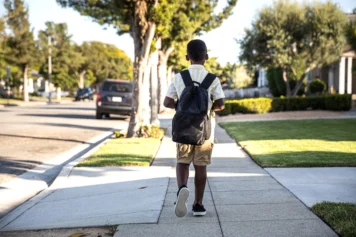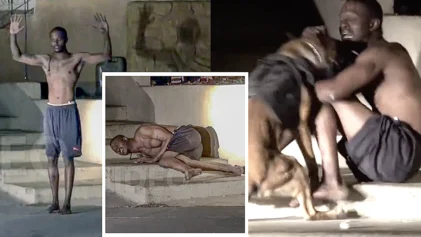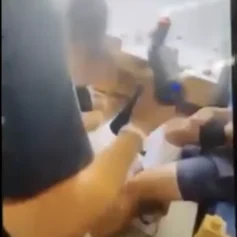The family of a British drill rapper killed by local police is asking the United Nations, the world’s intergovernmental security and peace organization, to step in and help them get answers. They believe the police have stalled the investigation into his death, and now are attaching his premature demise to a global conversation of “police brutality” and racism.
On Friday, Sept. 23, in a press release, published by the charity Inquest, the family reiterates its “continued concerns about the circumstances” around the Sept. 5th death of Chris Kaba in Streatham Hill, south London, where police fatally shot him in the head while the 24-year-old was in a parked blue Audi.
Kaba’s cousin, Jefferson Bosela, shared the family has grown not only frustrated with the investigation around their loved one’s death, but also with the way the media is covering his death.
“It is extremely distressing to read offensive media allegations about Chris’ past. We have no idea whether the claims are correct, but we can’t see how they are relevant to the police’s decision to shoot Chris dead,” Bosela said. “Everyone in this country has the right to go about their business without fear of being killed by the police.”
He continued, saying, “Media speculation about his past is a distraction from what must be the priority, which is establishing precisely how and why he was killed.”
To circumvent some of the “distraction” caused by news chatter regarding his death and the death of another Black Brit, Oladeji Omishore, who jumped to his death off the Chelsea Bridge in West London after being Tasered by officers, a plea has been made to the United Nations.
Omishore, a man having a manic episode connected with his schizophrenia diagnosis, died in June after an altercation with police.
Officers thought he had a screwdriver and was using it against the Metropolitan Police as a weapon. However, later it was discovered, the item in his hand was actually lighter.
The Kaba and Omishore families have petitioned the UN’s Office of the High Commissioner for Human Rights to look into the case of the 24-year-old rising star and the 41-year-old, undergoing a manic episode, according to The Guardian.
In the past, the commission has reviewed and investigated “police brutality” and human rights violations by law enforcement against Africans and people of African descent” in various countries, starting research in June of 2020 on systemic racism against Black people.
A year after the organization started its comprehensive study on race-based discrimination, it determined many nations, including the UK, have serious problems with racism in law enforcement. One of the cases cited in the investigation was of Kevin Clarke, a man of African descent who suffered from schizophrenia, who died in 2018 after being placed in restraint by police in south-east London.
The report was sure to add to the urgency of his case being reopened in August of 2021. In this investigation, the Independent Office for Police Conduct looked at footage of the incident and showed the man telling up to nine Met Police holding him down that he could not breathe.
It was later determined the restraint used on Clarke was inappropriate and contributed to his death. While there were other cruel and unusual acts of punishment perpetrated against the man, including making him walk to an ambulance while his knees were bound and he was barely conscious, the IOPC said one another thing discovered when going back to look at the case was that The Met broke regulations by holding misconduct proceedings without telling Clarke’s family or the IOPC.
The international watchdog committee added this is an example of the “impunity” enjoyed by police officers in the nations mentioned in the report that violated the human rights of Black people.
As a result, the OHCHR will continue to analyze and “monitor progress on accountability and redress for systemic racism”.
“There are legitimate concerns about the immediate resort by police to use of lethal force and racial stereotyping that equates black men with dangerousness and criminality,” Deborah Coles, the director of Inquest, said.
She continued, “Time and again we see the demonization of the person who’s died to deflect attention away from police conduct and vital questions about the accountability of police to the rule of law.”
Omishore’s family also released a statement regarding the slow move to justice for their beloved son.
“We are extremely frustrated with the decision by the Independent Office for Police Conduct to continue to treat the officers involved as witnesses and not declare a conduct or criminal investigation for what we saw as a disproportionate and excessive use of force,” the remark read. “We strongly believe this force led to the untimely and avoidable death of Deji.”
Their stance is clear, and has been since June, “There was no apparent risk assessment or efforts to de-escalate the situation in accordance with their police guidelines. Deji was clearly in distress and experiencing a mental health crisis. We strongly believe the officers’ actions were unlawful, and a very sad reminder of how black people are treated in police contact.”


